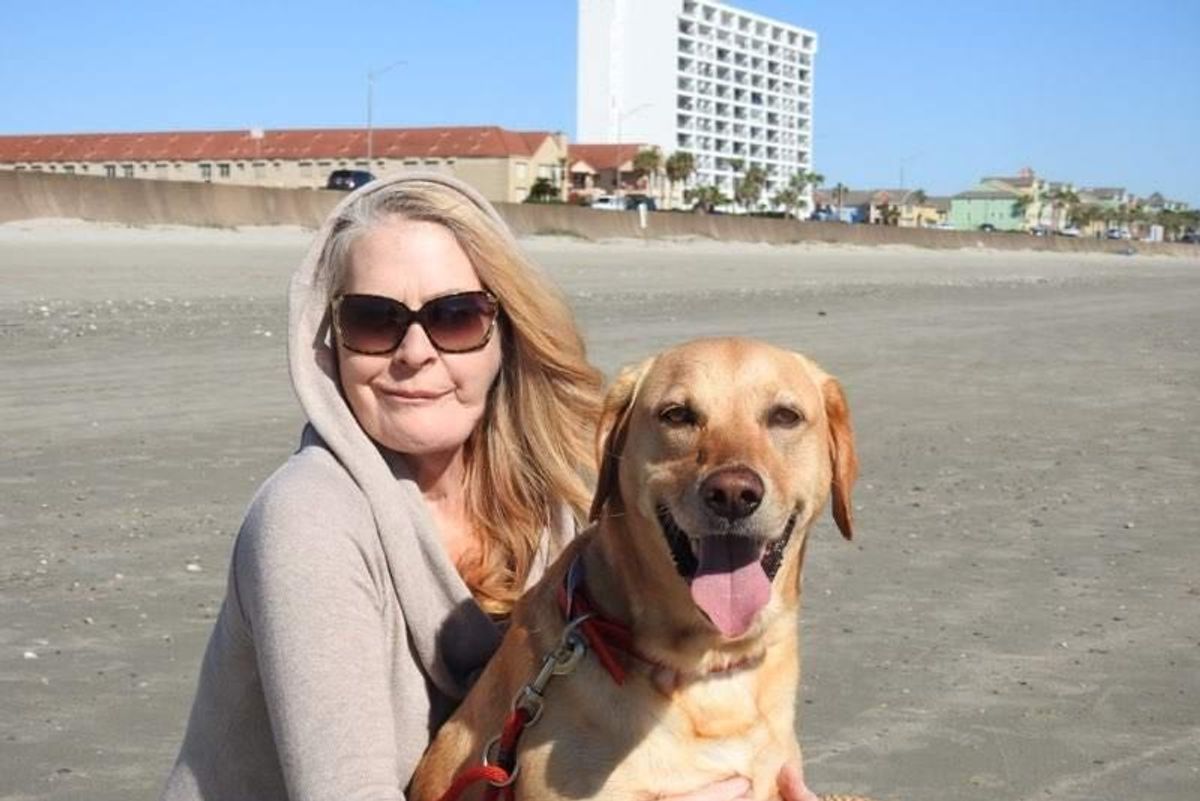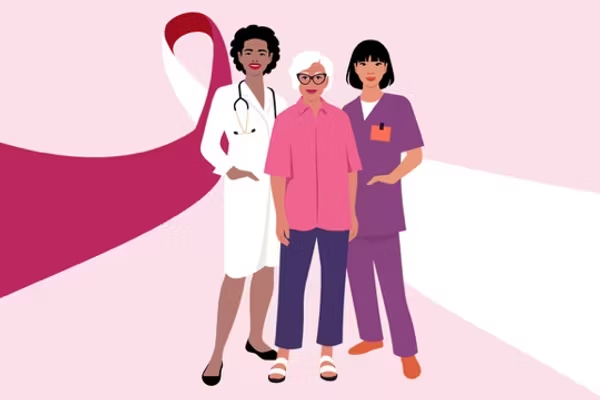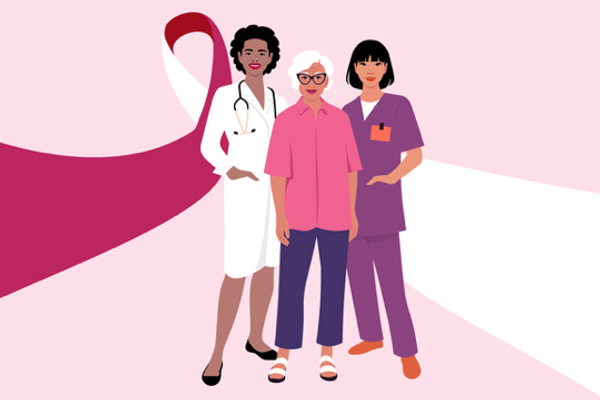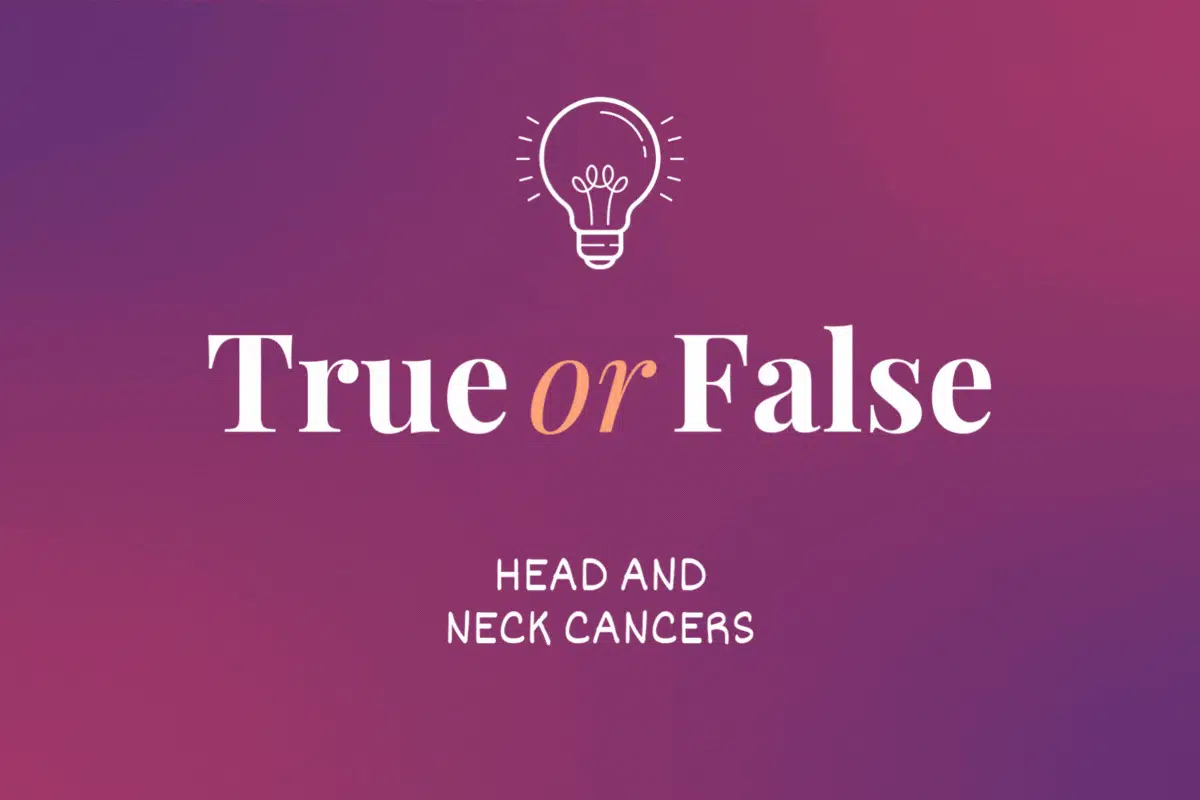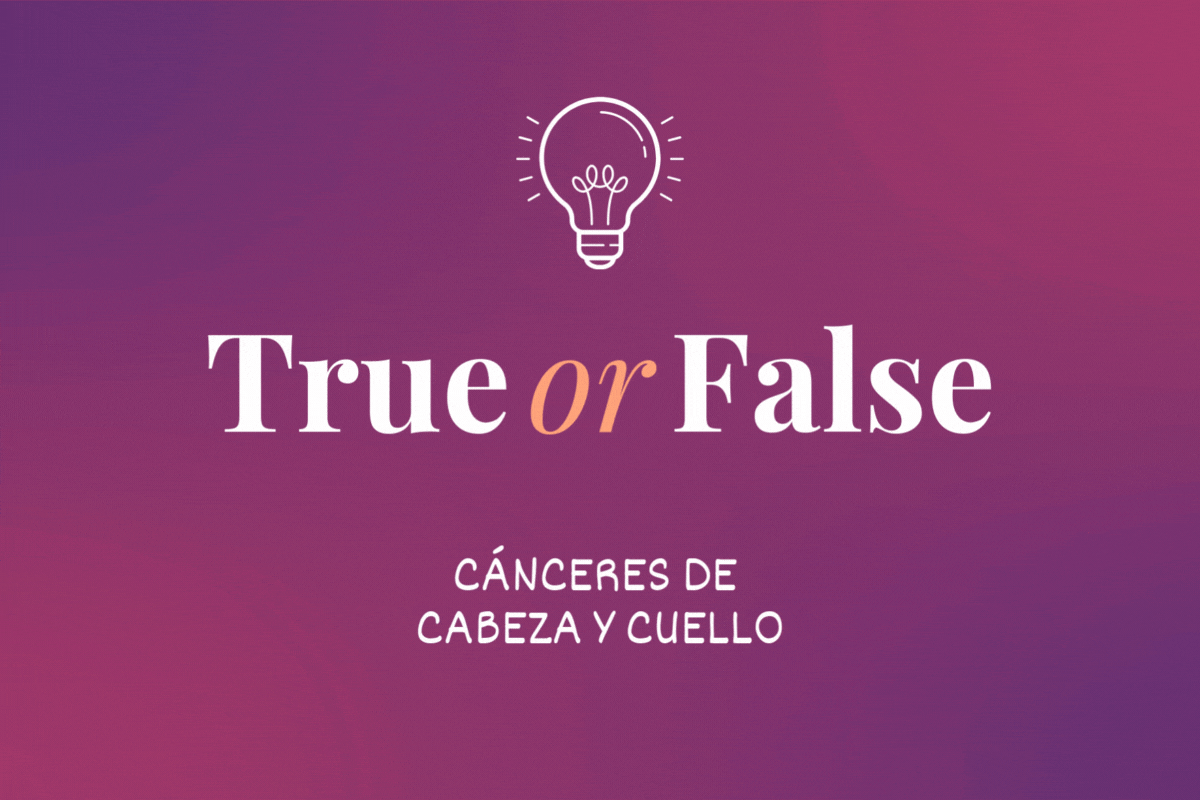I knew there was something more to the lump I felt in my throat.
But it still took 2 1/2 months in 2007 and several visits to an ear, nose and throat specialist (ENT) to convince her to look harder and deeper at my symptoms. Even my father was convinced I was a hypochondriac, the same 5-year-old girl insisting on a Band-Aid for a freckle.
Eventually, the ENT did an endoscopy and found a finger-like growth in the back of my throat. After a biopsy the next morning, I heard the dreaded news: It was cancer. An otolaryngologist, a specialist in ear, nose and throat, as well as some areas of the head and neck, diagnosed me with squamous cell carcinoma of the left tonsil.
At the time I was diagnosed, I knew virtually nothing about head and neck cancer. I was 42, decades younger than most who get the same diagnosis, with no family history of the disease.
After surgery to remove the lump, I started a high dose of radiation treatment for seven weeks straight, and I no longer showed signs of cancer.
Christmas came and went, and although my radiation treatment was behind me, the new year brought the horrible news that my father had esophageal cancer. I went from being a patient to a caregiver. He died 18 months later, but my cancer battle continued.
To be considered in remission, I had to make it five years cancer-free. In 2011, during routine dental work, my oral surgeon noticed a suspicious patch resembling a burn mark on the back of my throat. He sent me to a different otolaryngologist who confirmed my cancer had returned, and this time it was on the left side of my tongue. The burn mark turned out to be radiation burn, but the otolaryngologist discovered the recurrent cancer during the examination.
Surgeons removed a small portion of the left side of my tongue, which left me with a slight speech impediment. All things considered, I managed that really well. I was still eating the food I usually did, I just had to be more mindful about my approach to chewing and swallowing.
At my 12-month checkup, I was still cancer free. Then came month 13: My cancer had returned to the base and majority of my remaining tongue. In 2013, I underwent a procedure where the muscle and nerves in my left forearm were harvested and used to build a new tongue.
I had a feeding tube and port surgically placed to get me through the upcoming chemotherapy and another seven-week course of radiation therapy. My chemotherapy days were grueling. I started at 7 a.m. and finished at 7 p.m., leaving the infusion center to run to the floor below for radiation treatment. On April 16, 2013, I proudly rang the bell signaling my last chemo treatment.
On a follow-up visit shortly after, my doctor told me there were very few treatment options left if my cancer returned.
It was imperative now for me to make the five-year milestone. (The clock reset every time my cancer returned.) If not, doctors told me I would not live much longer than 50. Even with that said, I never felt like I was dying or that there was an expiration date on my forehead. I didn't dwell on it, I just kept up my regular routine, which included raising a flock of neglected chickens I rescued.
Eating was a huge hurdle for me. After my second tongue surgery, all of my nutrition came from the feeding tube. On the one hand, it was great to juice or blend a variety of nutritious food and just shoot it right in my tube, but I was mourning the act of eating food.
I slowly worked up to swallowing smoothies, milkshakes and eventually soups while my feeding tube was still in. After about four months, I felt like I was ready to sustain myself nutritionally without my tube, and I approached my medical team about removing it. They were worried it was months ahead of schedule, but I promised to return if I couldn't manage it.
With the tube out, I started to experiment with transforming traditional soup recipes into drinkable form, which I kept up for a year until I could eat more solid food.
I was doing really well until 2016 when I noticed some of my teeth felt loose. I went to my dentist, who suggested I go back to my otolaryngologist. He consulted with a maxillofacial surgeon who determined that due to my past radiation treatment, my lower left jaw bone became necrotic. It had to be removed and replaced with the fibula from my right leg. That surgery resulted in my disability becoming more visible, and it caused my self-esteem to take a nosedive.
Luckily, a year later I heard the words the doctors told me I thought I would most likely never hear, "You are in remission."
While in remission, I started to think about what it meant to me to live my best life. I am originally from the West Coast but had moved to Georgia in the early 1980s. I had always missed the ocean and decided remission meant returning to it. I planned a trip to the Gulf Coast to house hunt.
I spent Saturday with a real estate agent and Sunday walking on the beach where I prayed to God and my father. After walking for miles with tears rolling down my face, I asked for a sign. As I said amen, the water rushed up around my feet and when I looked down, there was a rock shaped like a heart.
I flew back to Georgia, sold most of my belongings, loaded up my dogs and hit the road. In May 2019, I settled in a charming little beach house just blocks from the ocean where I live today with my yellow lab Ozzy. I am now 55 and medically retired. Ozzy and I can be seen most days out walking on the beach.
For anyone facing head and neck cancer, my best advice is this: Be your own advocate. No one knows your body better than you. If something is wrong, keep pushing until your healthcare providers sit up and take notice. And once your battle is over, look for your own heart-shaped rock. Don't be afraid to start over no matter how terrifying. It may not be the life you had before cancer, but you can't stop now! Go live your best life.
This resource was created with support from Merck.

